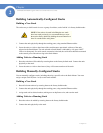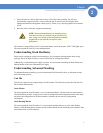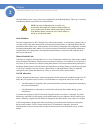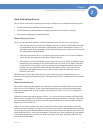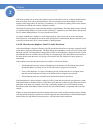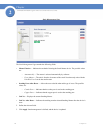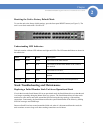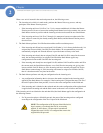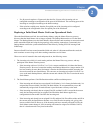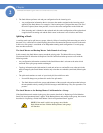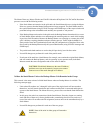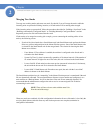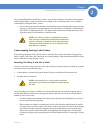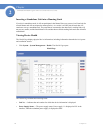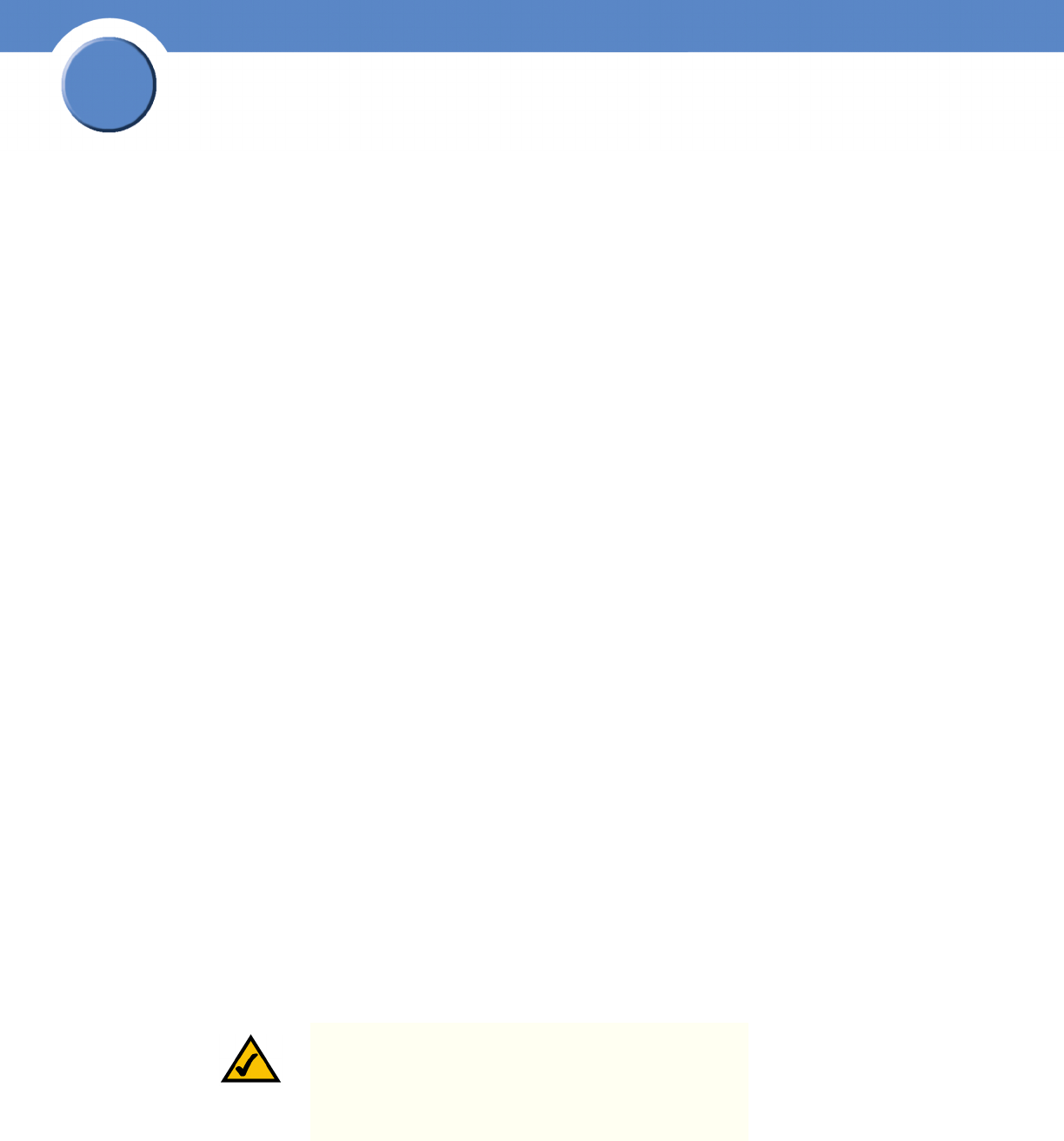
22
Chapter 2:
SFE2000/SFE2000P Gigabit Ethernet Switch Reference Guide
Chapter
2
When a new unit is inserted in the stack and powered on, the following occurs:
1. The incoming unit, which is in stack mode, performs the Master Discovery process, and may
participate in the Master Election process.
• If the incoming unit has a Unit ID of 1 or 2 (it is a master-enabled unit) it initiates the Master
Election process. However, because the running Stack Master has a longer runtime, the current
Stack Master retains its position and the incoming unit does not become the new Stack Master.
• If the incoming unit has a Unit ID of 3 through 8, it attempts to become a member unit of the
stack, subject to control by the already running Stack Master, and the Master Election process
does not occur.
2. The Stack Master performs Unit ID allocation and the conflict resolution process.
• If the incoming unit did not have an assigned Unit ID (that is, it is in factory default mode), it is
assigned the lowest available Unit ID by the Stack Master. We recommend that you use the
automatically-assigned unit ID mode because it provides better resiliency to the stack.
• If the incoming unit already has an assigned Unit ID, and that Unit ID is unused in the current
stack, the incoming unit keeps its assigned Unit ID and the Stack Master applies any
configuration relevant to that Unit ID to the incoming unit.
• If the incoming unit already has an assigned Unit ID, and that Unit ID conflicts with a unit ID in
the current stack, the Stack Master allocates a new Unit ID to the incoming unit, giving it the
lowest available Unit ID. However, if the incoming unit has a manually assigned Unit ID, the
Stack Master cannot change it. If the incoming unit cannot be assigned an available Unit ID,
then it is shut down and is not joined to the stack.
3. The Stack Master performs unit and port configuration for the incoming unit.
• Any configuration information that is relevant to the number assigned to the incoming unit is
applied by the Stack Master. For example, if the incoming unit is assigned the same Unit ID of
the unit it replaced, then when possible, it receives the same configuration as the failed unit.
• If the incoming unit is identical to the replaced unit, the entire configuration of the replaced unit
is applied to the incoming unit and the stack returns to the state it was in before unit failure.
If the incoming unit is not identical to the unit that failed, the Stack Master applies the configuration in
the following manner:
• If a 24-port unit replaces a failed 48-port unit, the ports of the incoming unit are configured
according to the configuration of the first 24 ports of the failed unit.
NOTE: The configuration of all 48 ports of the failed unit is
kept in memory, even though the first 24 are currently
applied. If, in the future, a 48 port unit is inserted and
assigned the same Unit ID, it is configured the same as the
original failed 48-port unit.



